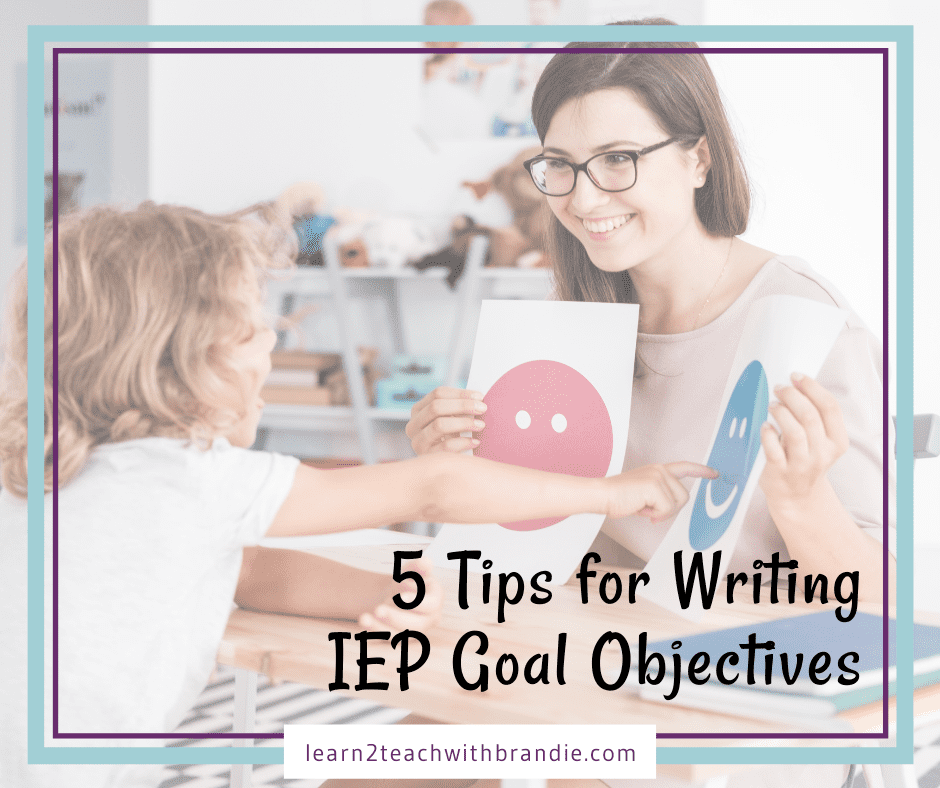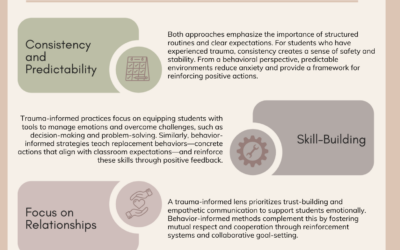Writing IEP goals can be challenging on their own, but writing objectives can bring even the most seasoned special educators to their knees. But have no fear… They don’t have to! Check out these 5-tips for making writing IEP goal objectives easier AND making them meaningful! (yes- they can be both!! )
1. Shorten the amount of time a student is expected to do the skill
This is a fast and easy way to write objectives that make meaningful changes to a goal. For example, let’s say you have a goal for attending and the annual (final) goal is set to have the student attend for 20 minutes. The objectives can be set for shorter time periods as they move through mastery of the skill. The first objective can be 5 minutes, and then 10 minutes as so on. The goal changes and the objectives are set so the student will make meaningful progress along the way.
2. Break down the criteria of the skill
Objectives can be used to break a skill (goal) down into smaller steps with partial criteria in each objective. For example, if you have a goal that is set that a student will be able to answer what, when, where, and why questions after reading a passage. Each objective can be set to master one of the “wh” questions and then by the annual they will be able to answer all of the questions!
3. Change the setting
This is one of my favorite ways to write objectives. (and the most overlooked). We often forget that just because a student can master a skill in one location, it doesn’t mean they have mastered it across all settings. For example, we may write a goal for taking turns and we write the goal for recess. (which would be a large group). For the objectives, we can start in a 1:1 setting, then move to a small group, and then move into the large group. This is a very meaningful way to write objectives and remind ourselves that skill mastery needs to be considered across all settings.
4. Use Prompts
I am going to step out on a limb here but I believe that prompts should never be used in the annual goal. I know, I know, this is a loaded comment. Hear me out. 🙂 Long term, a prompted skill is of no use to a student. If a student needs a prompt to do a skill then it isn’t a mastered skill. But… using a prompt in an objective is very effective because it is being used as a stepping stone toward independence! (and independence should always be our goal)
5. Change the accuracy or consistency
Every goal needs to include accuracy (how correct they are) and consistency (over what time frame will they display the skill). These two sections of the goal are great places to adjust for objectives. Maybe you will start out with the criteria being a much lower level of accuracy and then increase until you get to the annual goal (60%-70%-80%-90%) or you may adjust over what time frame do they need to show mastery of the skill (over a 1-week period, 2-week period, 3-week period). These are both very effective and meaningful ways to write objectives.
IEP goals really are the heart of an IEP and the IEP goal objectives are just as important as the annual goals. Meaningful objectives make IEP goals just that more powerful!





